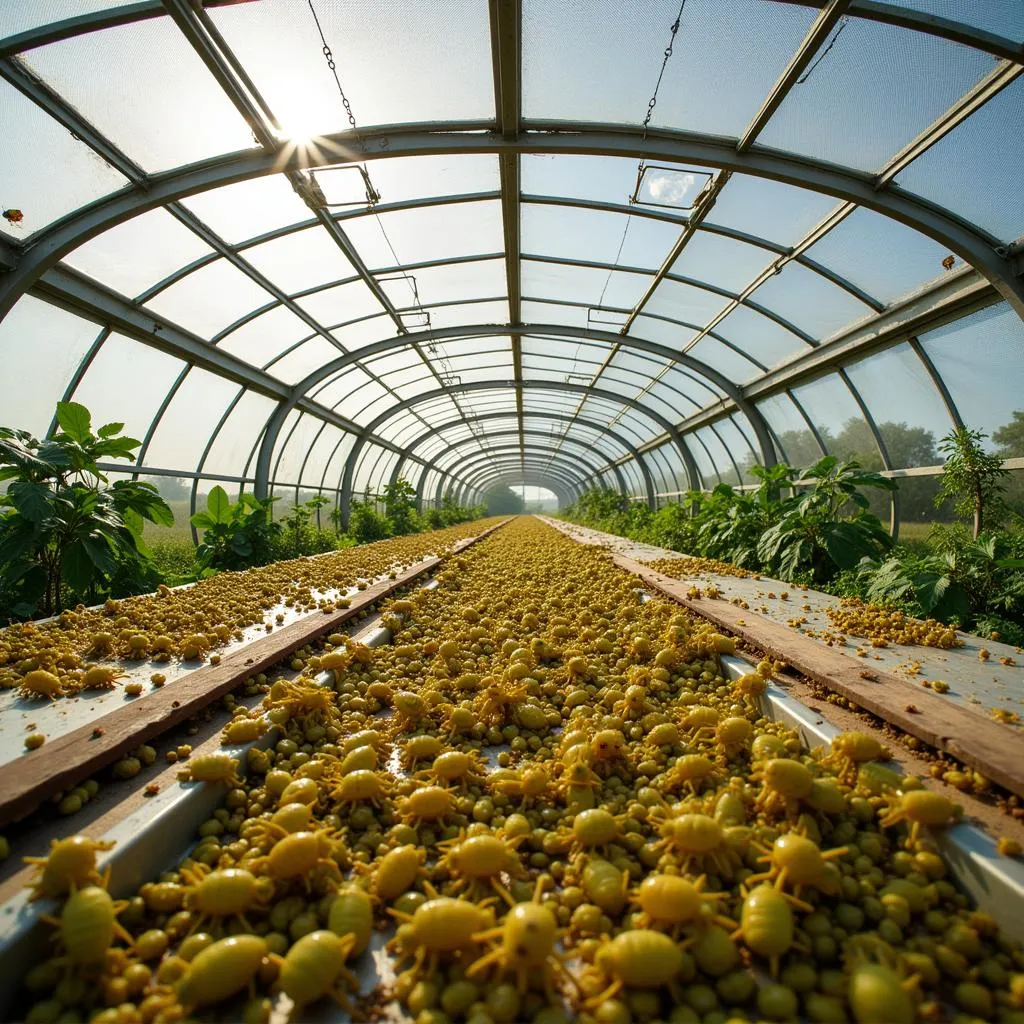Exploring the World of African Insect Food
Entomophagy, the practice of eating insects, might seem unusual to some, but in many parts of Africa, it’s a long-standing tradition woven into the fabric of culinary culture. African Insect Food isn’t just about survival; it’s a delicious and sustainable source of nutrition enjoyed by millions.
 Women selling mopane caterpillars
Women selling mopane caterpillars
A Nutritional Powerhouse: Why Insects Are a Staple in Africa
Many insects are surprisingly rich in protein, often exceeding the levels found in beef or chicken. They also offer essential vitamins, minerals, and healthy fats. In regions where livestock farming is challenging or expensive, insects offer a readily available and affordable source of essential nutrients.
Popular African Insect Delicacies
Africa boasts a diverse menu when it comes to edible insects. Here are a few favorites:
- Mopane Caterpillars: Found throughout Southern Africa, mopane caterpillars are a culinary star. Often dried or smoked, they can be enjoyed as a crunchy snack or cooked into stews and sauces.
- Termites: These small but mighty insects are packed with protein and fat. In many African countries, they’re roasted, fried, or even ground into flour.
- Palm Weevil Larvae: Considered a delicacy in parts of Central Africa, these plump larvae are often roasted over an open fire, giving them a unique smoky flavor.
 Family meal with roasted termites
Family meal with roasted termites
Sustainable and Eco-Friendly Food Source
Insects are incredibly efficient at converting feed into body mass, requiring far less land and water than traditional livestock. Their farming also produces significantly fewer greenhouse gases, making them a much more environmentally friendly protein source.
Beyond the Plate: Insects in African Culture and Tradition
The relationship with insects goes beyond just food in Africa. They play a role in traditional medicine, folklore, and even spiritual practices in certain communities.
- Traditional Medicine: Some insect species are used in traditional remedies for various ailments, demonstrating a deep understanding of their properties.
- Folklore and Stories: Insects often feature prominently in African folklore, teaching life lessons and explaining natural phenomena.
The Future of Insect Consumption
With growing concerns about food security and environmental sustainability, insect farming is gaining recognition as a viable solution.
 Insect farm in Africa
Insect farm in Africa
Conclusion
African insect food is more than just a culinary curiosity; it’s a testament to human ingenuity and the close relationship between people and their environment. As the world explores sustainable food solutions, African entomophagy offers valuable lessons and inspiration. From crunchy caterpillars to savory termite stews, the world of African insect food is diverse, delicious, and full of potential.
FAQ
Q: Is it safe to eat insects?
A: Yes, many insect species are safe for human consumption. It’s essential to source insects from reputable suppliers or follow traditional preparation methods to ensure safety.
Q: What do insects taste like?
A: The taste of insects varies depending on the species and preparation method. Some have a nutty flavor, while others might taste earthy or meaty.
Q: Where can I try insect food?
A: If you’re feeling adventurous, you can find restaurants specializing in insect-based dishes in some major cities. Alternatively, you can explore online retailers selling edible insects.
You might also be interested in:
For any further inquiries or assistance, feel free to reach out to us at:
Phone Number: +255768904061
Email: kaka.mag@gmail.com
Address: Mbarali DC Mawindi, Kangaga, Tanzania.
Our dedicated customer support team is available 24/7 to assist you!


